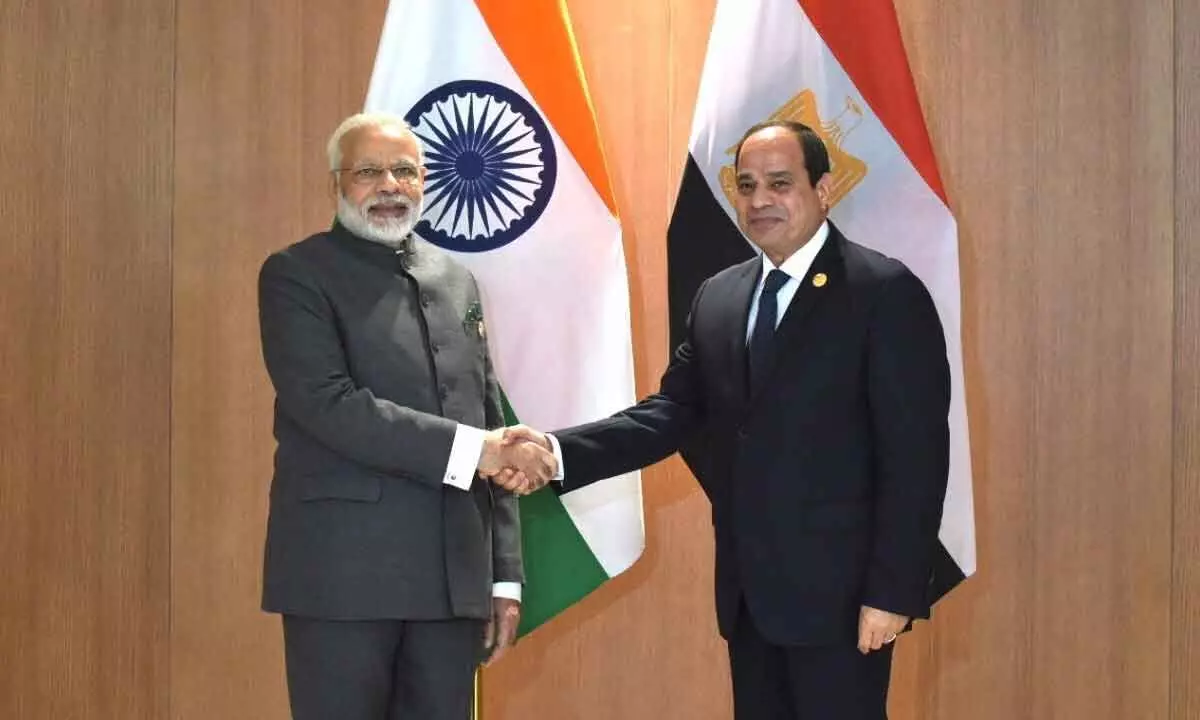India And Egypt Work Together To Combat Religious Extremism

- PM Modi personally initialled a document establishing a bilateral "Strategic Partnership" with President Abdel Fattah El-Sisi and began a new chapter with the Arab world.
- Following the 1997 visit of then-PM I K Gujral, this was the first bilateral visit by an Indian prime minister.
Prime Minister Narendra Modi's first trip to Egypt last week may have been overshadowed by his historic state visit to the United States, but it was during that trip that he personally initialled a document establishing a bilateral "Strategic Partnership" with President Abdel Fattah El-Sisi and began a new chapter with the Arab world. Following the 1997 visit of then-PM I K Gujral, this was the first bilateral visit by an Indian prime minister.
India's main objective was to establish contact with Egypt, which is still the Arab League's headquarters and is seen as a leader of the Arab World, even though the public's attention was on bilateral economic ties and cooperation with the Global South. The visit took place when a struggle for control of the Islamic world is ongoing between Sunni Saudi Arabia, Qatar, the United Arab Emirates, Shia Iran, and Turkey, the legatee of the Ottoman Empire.
While Turkish President Recep Erdogan visited India, Prime Minister Modi also travelled to Saudi Arabia, the United Arab Emirates, Qatar, and Iran. The outreach to Egypt, the centre of Islamic learning, was intended to fill this crucial vacuum. When it comes to combating religious extremism, India and Egypt are on the same page, with President Sisi demonstrating his tough stance against the Muslim Brotherhood and its extreme affiliates throughout the Middle East.Although nations like Qatar, Kuwait, and even Shia Iran have intimate relationships with this pan-Islamic network, Saudi Arabia and the United Arab Emirates have also outlawed the Muslim Brotherhood and labelled its branches as terrorist organisations.
According to President Sisi, the Muslim Brotherhood has been consuming Egypt's intellect and body for the past 90 years. He warned against allowing nations to be destroyed from inside, spawning millions of refugees and generations of extremists, and unleashing immeasurable devastation on the wider area for decades. He claimed that organisations like the Brotherhood gnawed at the state and produced a culture of scepticism and suspicion. Egypt has shifted towards moderation under President Sisi's leadership without reneging on its historical Islamic traditions and culture.
President Sisi will preside over the 2023 Republic Day parade instead of other world leaders, and PM Modi has hinted at a strengthening and renewal of the two countries' ties by inviting him to visit to India in September for the G-20 conference in New Delhi. There may be more interaction between India and Africa in the days to come.
Next Story














